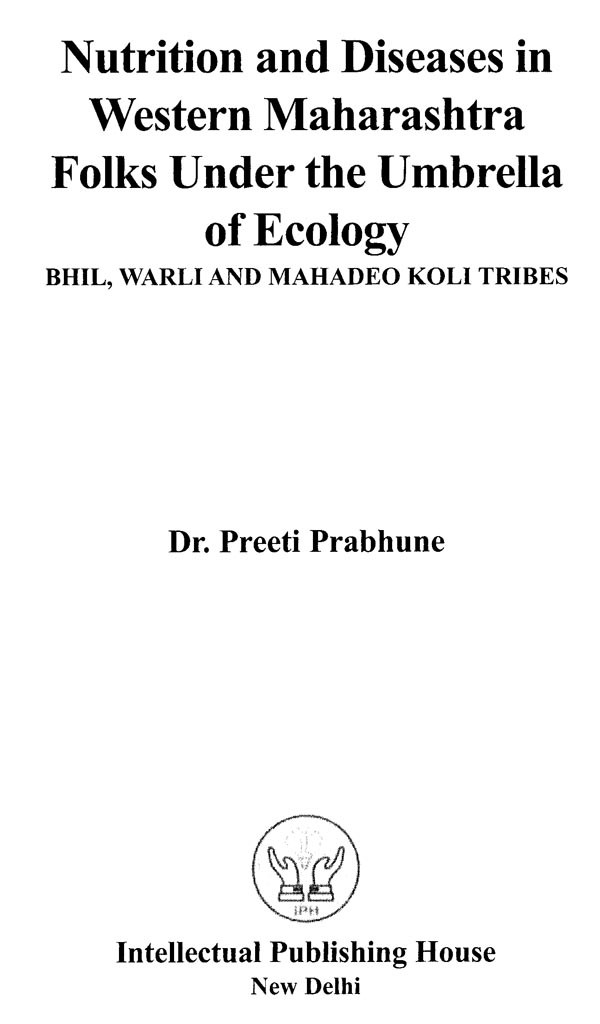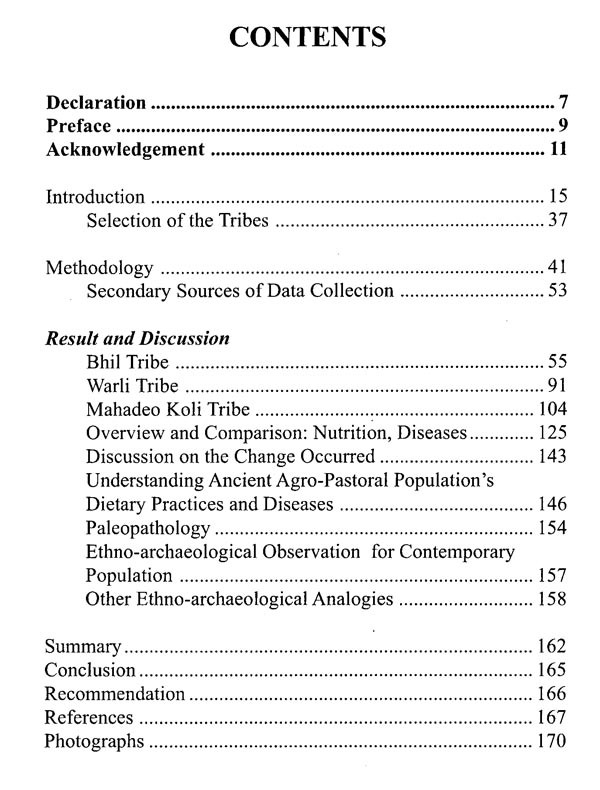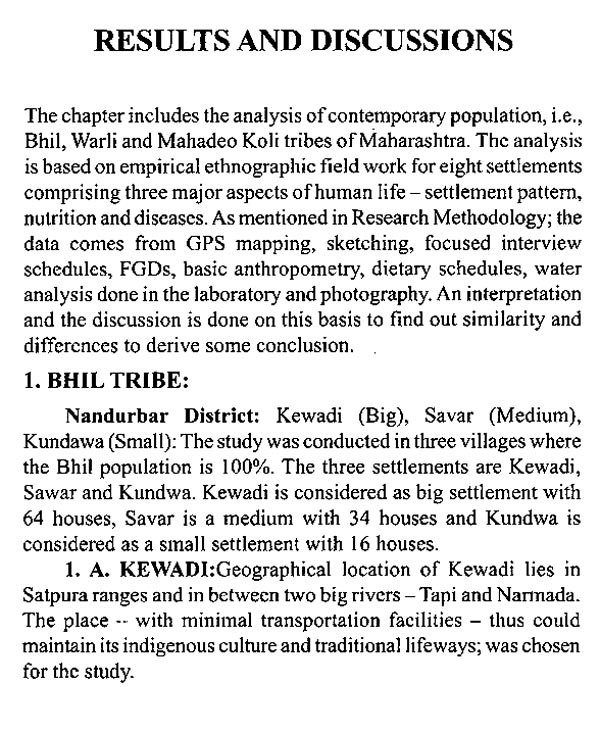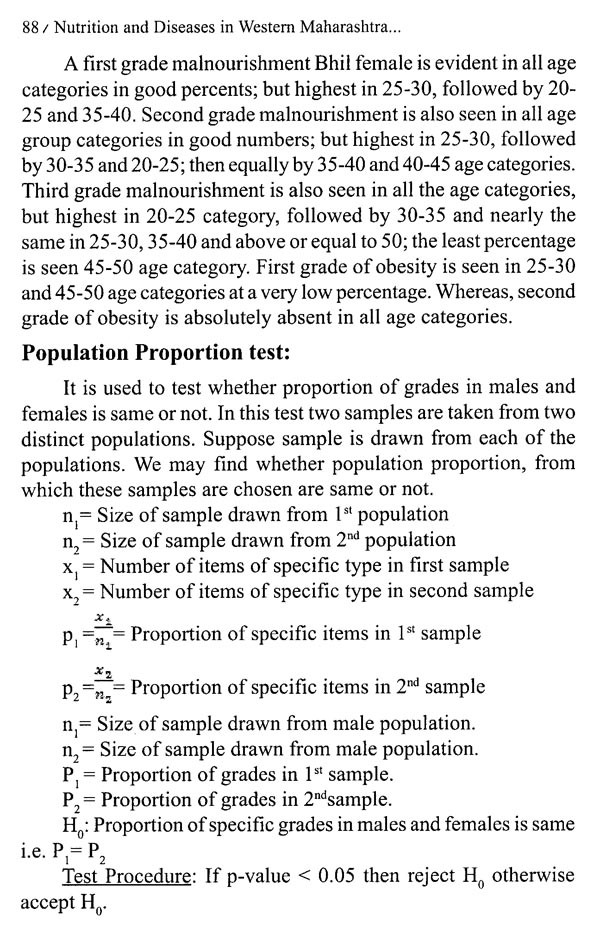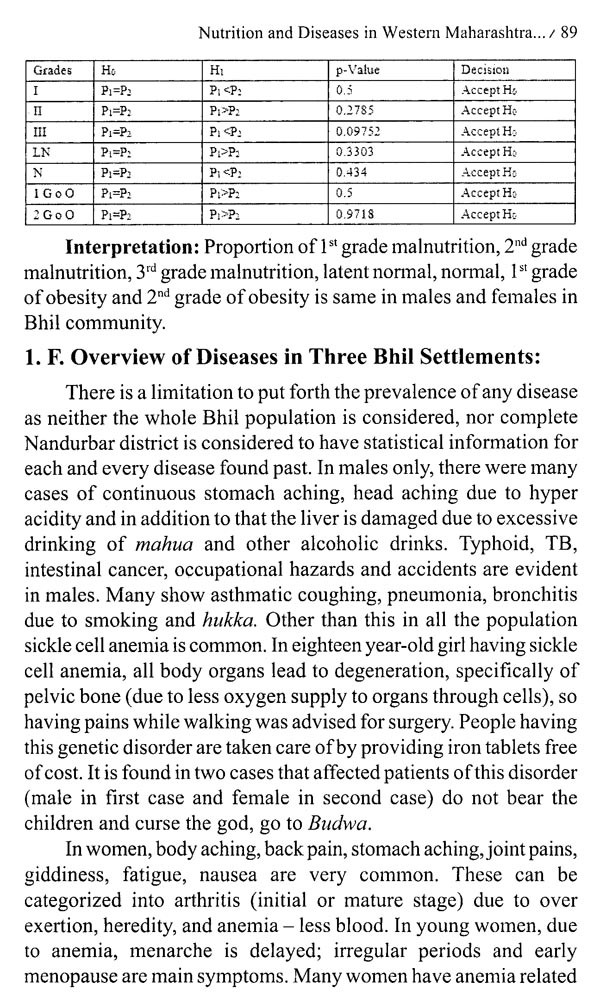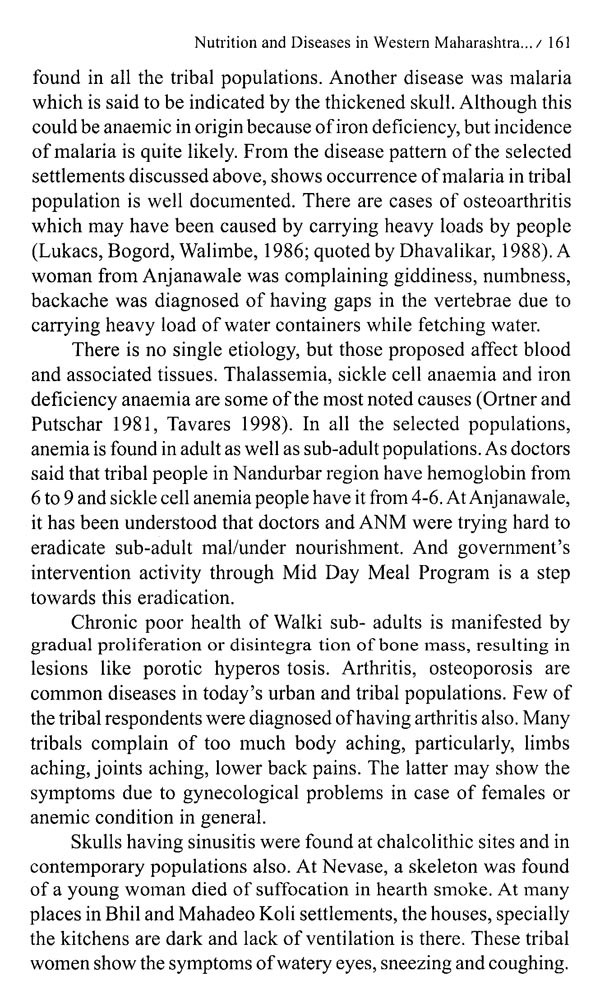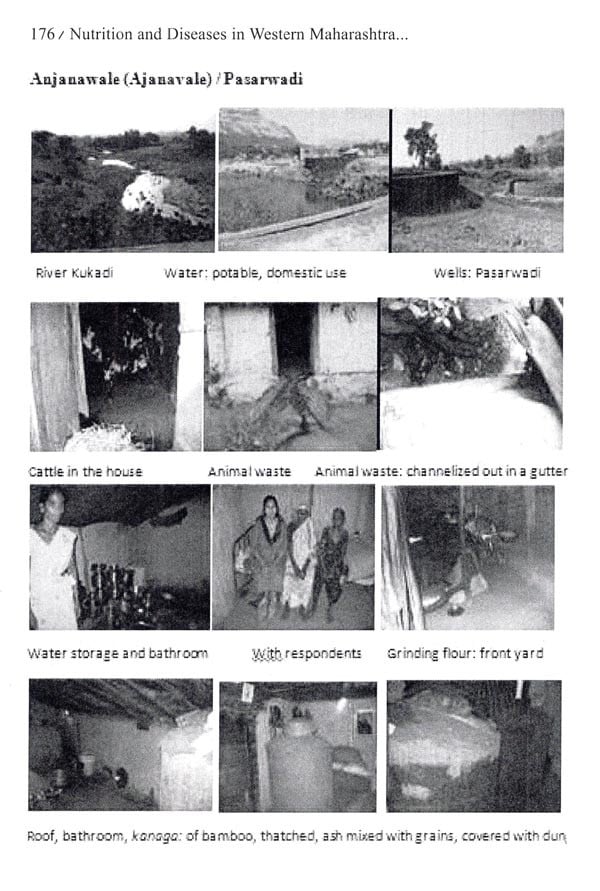
Nutrition and Diseases in Western Maharashtra Folks Under the Umbrella of Ecology- Bhil, Warli and Mahadeo Koli Tribes
Book Specification
| Item Code: | AZE886 |
| Author: | Preeti Prabhune |
| Publisher: | INTELLECTUAL PUBLISHING HOUSE, NEW DELHI |
| Language: | ENGLISH |
| Edition: | 2021 |
| ISBN: | 9788194784463 |
| Pages: | 180 (Throughout B/w Illustrations) |
| Cover: | HARDCOVER |
| Other Details | 9.00x6.00 inch |
| Weight | 380 gm |
Book Description
Food and diet studies become extremely important when increased rate of malnourishment is witnessed. Malnourishment at its both extremities are witnessed today - over-nourishment in urban set up and under-nourishment in rural, tribal set up. Both are alarming and cause morbidity conditions. Of course, sheer burden on nation's Health Department instead of National Health Ministry and must be considered in deciding Health Policies. Human Development Index gives top ranking to availability of food to eat. Hence, food security is given utmost priority globally. Growth and nutrition studies are popular in traditional biological anthropology.
The food availability, food habits, diet pattern and nutritional status in a particular geographical and ecological conditions; at the habitat of three tribes Bhil, Warli and Mahadeo Koli of Western Maharashtra, is studied in details. Also, the discussion over water analysis from respective field sites is done as water is a very important nutrient of human diet. One's food intake and physical exertion decides that person's nutritional status, so the catchment analysis, i.e. the distance covered to gather needed resources is also discussed here. The deficiencies of macro-micro nutrients cause various health ailments and particular environmental and ecological conditions decide overall disease pattern. Pets being a part of their life, and also can be a source of zoonotic infections, their diseases are discussed along with treatment and medical practitioner. It is an individual's choice to have preference for particular 'pathy' and opting for certain medical practitioner; allopathic practitioner is approached when the diseases go beyond the control of home remedies and herbal treatment.
With this contemporary scenario, it has been tried to understand the diet and health association of the human groups and animals also in ancient agro-pastoral populations of the region and in vicinity through Pale pathology from different archaeological excavation reports. Hopefully this holistic study of human health will prove useful for the academia, students from various disciplines like anthropology, archaeology, ecology, public health and beneficial to expand further research chores.
Although, Dr. Preeti began her journey with journalism and then worked as a school teacher, afterwards started enjoying the research process truly... Working in the NGO sector introduced her to urban reality of Katkari, Laman/ Banjara, Gopal/Dombari (street players), Vaidu, Kuchi Korve, Potraj, Kanjarbhat, Wadari etc. city dwellers. Socio-economically backward migrant communities face problems of getting adapted, livelihood and education of children. Community based study centers, skill development, social entrepreneurship could minimize some of their issues. She dealt with many research problems concerned with street children issues of malnourishment, their socio-cultural challenges, substance consumption, reproductive and child health, non-communicable diseases, geriatric issues including elderly vaccination, also the issues of female sex workers. She has published many research papers in variety of refereed journals and popular articles in Marathi, English and Hindi languages. She has published one book in Marathi language titled, "A Day With Female Workers" has Deen Published by Unmesh Publication, Pune; presently working on Bhima Basin For Maharashtra Gazetteer.
Anthropology of food has a special significance in itself. People are very skeptical about what they eat, how it is prepared and what ingredients it contains. Though food culture is also getting global with globalization, the regional food culture, authentic taste and aroma are also well preserved and this can be seen in all parts of the world. On contrary to this tempting foody culture, few people are dying of starvation in the corners of the world.
Food and diet studies become extremely important when increased rate of malnourishment is witnessed. Malnourishment at its both extremities is witnessed today-over-nourishment in urban set up and under-nourishment in rural, tribal set up. Both are alarming and cause morbidity conditions. Of course, sheer burden on National Health Ministry and must be considered in deciding Health Policies. Human Development Index gives top ranking to availability of food to eat. Hence, food security is given utmost priority globally.
Standard dictionary definition of ecology is "the study of the relations between organisms and their environment". This includes the study of all species. Environment in this view is seen not as external, but as integral component of total system (Anderson, 1973). The ecosystem framework suggests a synthetic focus upon an organized unit in transactions of production, distribution, consumption and material recycling are structured and functioned. Thus the ecosystem conceptually unites the biology, behavior, organization, and functioning of man, other animals, plants and inorganic components within a single framework in which the interaction of the components may be studied. The structure and functional interrelation of an ecosystem emerge from the study of circular exchanges between living and non-living components (ie, bio-geo-chemical cycles) and include non-circular energy and information transactions (Anderson, 1973).
Ecology comprises all aspects of man as a bio-cultural animal as they are subsumed within the structure and functioning of ecosystems, including human morphology, reproduction, population genetics, stress physiology, nutritional requirements, ecology of health and diseases, and human adaptability.
**Contents and Sample Pages**
